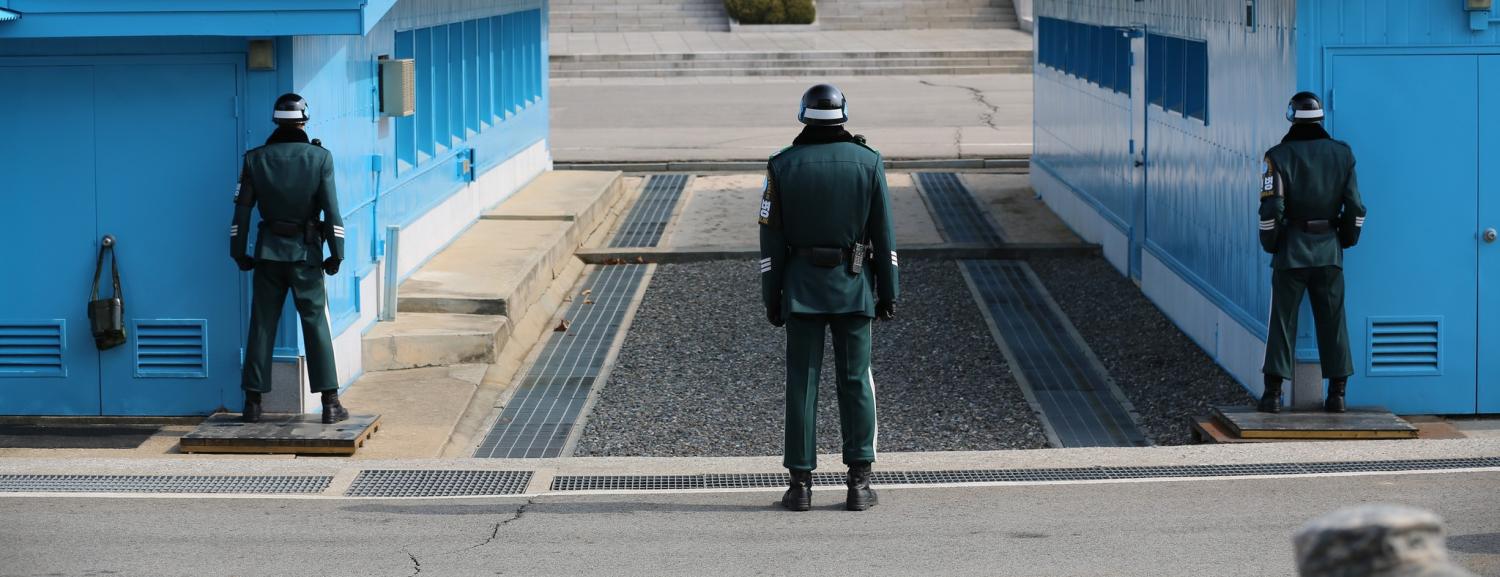Call me an optimist, but I think war on the Korean Peninsula is very unlikely. That’s the good news. The bad news is that the Trump Administration’s bellicose and amateurish antics over the issue are undermining America’s strategic credibility, while doing nothing to prevent North Korea building a missile with the range to hit the US mainland (an intercontinental ballistic missile or ICBM). So Trump’s signature mix of tough talk and feeble action is having exactly the effect his critics always expected and feared. It weakens America’s position in Asia, and strengthens China’s.
War on the peninsula is unlikely because it makes no sense for America to start one. That’s because it has no credible military options that offer a reasonable chance of destroying or even seriously obstructing North Korea’s nuclear and missile programs. Many key targets would be hard to find. Even with very good intelligence it would take a sustained strike campaign lasting weeks to make much impact. And at least some of the targets would be so deeply buried as to be almost impossible to touch.
The marginal results of such a campaign would have to be weighed against the costs of North Korea’s retaliation. It is unlikely North Korea would go so far as to immediately invade the South, but it would hit back very hard. And that would leave Washington with a new and even bigger problem: how to react in turn? Not responding to a major but limited North Korean counter-strike would look miserably weak, but any proportionate response would set both sides on an escalating path to a full-scale war which would quite likely become nuclear.
Everyone would like to see North Korea’s nuclear and missile programs stopped, but no one has seriously tried to argue that stopping them would be worth the costs of major, and possibly nuclear, war. And no one has convincingly argued that there is a credible military option that does not entail a very serious risk of such a war.
Not for the first time, then, Washington’s ‘all options are on the table’ is a transparent and pointless bluff. The hope that Trump’s missile attack on Syria would make his threats to North Korea more credible missed the big difference between striking an opponent that can’t hit back and striking one that can. And the strange and humiliating muddle about the USS Carl Vinson just confirms how far from serious Washington has been about attacking North Korea.
So Pyongyang won’t be deterred from further testing, and Beijing won’t be spurred into the kind of truly draconian measures that would have any chance of reining Pyongyang in. What happens next is therefore quite predictable. There will be more missile and nuclear tests, America and its allies will fulminate, nothing effective will be done, and North Korea will move steadily closer to an ICBM capability.
And what will that mean? I’ve written about this before. The key danger is not that North Korea might launch an unprovoked nuclear attack on the US, because devastating retaliation is so certain. It is that America’s capacity to deter a North Korean nuclear attack on Japan and South Korea would be undermined by Pyongyang’s ability to deter Washington by threating a counter-attack on the US.
That would leave US allies vulnerable to North Korean nuclear blackmail, erode their confidence in America’s ability to protect them, substantially increase their incentives to build their own nuclear deterrent and weaken their alliances with America.
And that, of course, has big implications beyond the Korean Peninsula. We should never forget that the North Korean issue is, for all its risks, no more than a second-order concern. The first-order concern is the contest between America and China for strategic primacy in East Asia. So our main focus should be how all this affects the outcome of that contest.
The answer is pretty plain. The looming North Korean ICBM capability delivers indirect but important strategic benefits to China by undermining the alliances which underpin the US-led regional order. That is not Trump’s fault. But it is one of the many reasons why relying on China to fix America’s North Korean problem makes so little sense. And his Administration’s attempt to handle the problem with transparent bluff makes it much worse.
It perpetuates and amplifies a pattern of conduct which has already done a great deal to undermine America’s strategic credibility in Asia. That really matters, because each time America talks tough and then steps back, China becomes more confident that its resolve is stronger than America’s, and it becomes emboldened to push harder. US allies then become less sure of US resolve, and start to hedge their bets.
Under Obama this happened in the South China Sea. Trump has already allowed it to happen over Taiwan and the One China policy, and with Tillerson’s ill-considered threat to block access to China’s South China Sea bases. Now he’s doing it again, only louder, and therefore more damagingly.
It is hard to escape the suspicion that Trump and his closest colleagues are not really serious about dealing with North Korea's nuclear challenge, any more than they are serious about Syria. Their principal concern is to exploit these issues to project a flattering image of the President to Americans at home – an image of strength and resolve which is the diametric opposite of the actual image his actions will end up projecting in Asia.
Photo by Flickr user Bryan Dorrough.
